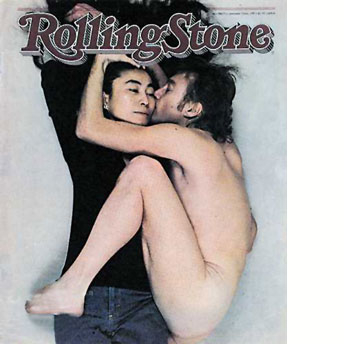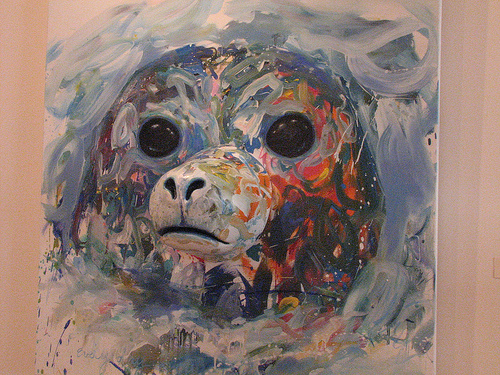Even if Daughter weren’t a gifted photographer, I would still be following the Annie Leibovitz story, rapidly approaching its denouement. Ms. Leibovitz is an icon in the world of photography, as well as belonging to that rarefied strata of people who become celebrities partly from their association with celebrities. It was Ms. Leibovitz who shot the famous magazine cover of a naked John Lennon curled in a fetal position next to Yoko Ono just hours before his murder.
So it was with a mixture of amazement and disbelief that I read about Annie’s dire financial plight. As with so many talented geniuses who make millions, Ms. Leibovitz has managed to spend far more than she earned, and now faces not only bankruptcy, but the loss of her photo archive and future copyright as well. How does this happen? I wondered the same thing about the late Michael Jackson. Do these insanely successful and talented people not have a single financial adviser to direct some of their megabucks into Triple-A bonds and guaranteed REITs? Does the average working stiff have an advantage here?
For Ms. Leibovitz, I suspect her current crisis had several authors. She weathered a series of personal heartbreaks in recent years, including the deaths of both parents and her longtime companion, writer Susan Sontag. She bought two townhouses in Greenwich Village with the plan to combine them into one property, drawing the wrath of historic preservationists as well as a multimillion dollar lawsuit by a neighbor whose foundation was destroyed in the renovation. She added surrogate-born twins to her family, tripling her childcare responsibilities and expenses. Still, a $50 million photo archive and a fee of $100,000 for private-client portraits would seem to cover it.
Perhaps the phenomenon runs deeper into the brain. Geniuses are different from the rest of us mortals. They’re wired differently and they function in a reality removed from ours. Their reality may not even have much to do with accepted reality, but we give them a pass because they add so much to our lives and our collective perceptions. I heard a story recently from someone who used to tour as a roadie with Bob Dylan back in the day, and he said Dylan insisted on being called “The Star” and even referred to himself that way in the third person. And despite the fact that my first reaction was “Oh, please!” in the end, he is, after all, Dylan.
Daughter’s Featured Fotos encourage us to Face It





